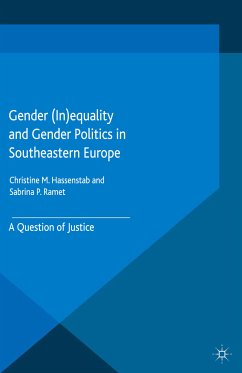Dieser Download kann aus rechtlichen Gründen nur mit Rechnungsadresse in A, B, BG, CY, CZ, D, DK, EW, E, FIN, F, GR, HR, H, IRL, I, LT, L, LR, M, NL, PL, P, R, S, SLO, SK ausgeliefert werden.
Hinweis: Dieser Artikel kann nur an eine deutsche Lieferadresse ausgeliefert werden.
'This is a timely and ground-breaking piece of work which revisits one of the key developments that took place twenty years ago in the 'former' Socialist Federative Republic of Yugoslavia and led to the break-up of that country...Vladisavljevic takes a completely fresh approach to this topic and sheds new light upon it.' Robert Hudson, Reader in Contemporary History and Cultural Politics, University of Derby, UK
'This book should be in the library of anyone interested in nationalism, dictatorships, peacekeeping forces, the Balkans, and the power of the people.' - Michael Mahoney, Europe-Asia Studies
'Vladisavljevic's is a timely revisionist account of a crucial aspects of 1980s Yugoslav history. Through a balanced scholarly approach, the study places Milosevic's rise to power in a novel context.' - Mladen Tosic, Nations and Nationalism
'Vladisavljevic challenges nearly every aspect of previous accounts of Slobodan Milosevic's rise to power in 1986-87 and of the nationalist mobilization of 1988-89...It is a stimulating argument and doubtless one that will stimulate argument.' - Robert Legvold, Foreign Affairs Magazine
'...a powerful reminder that ordinary people can accomplish extraordinary things...[it] contradicts the current historical record of Milosevic's rise to power and the ensuing nationalism. Indeed Vladisavljevic's bottom-up perspective redeems the voice and agency of the non-elite, rejecting accounts that cast them as mere puppets. That he is able to do so with such theoretical and empirical sophistication makes the argument all the more compelling and an enjoyable read.' - Mobilization
'This book is a valuable contribution to the scholarly literature on the former Yugoslavia, the fall of communism, regime change and nationalist mobilisation.' - Political Studies Review









